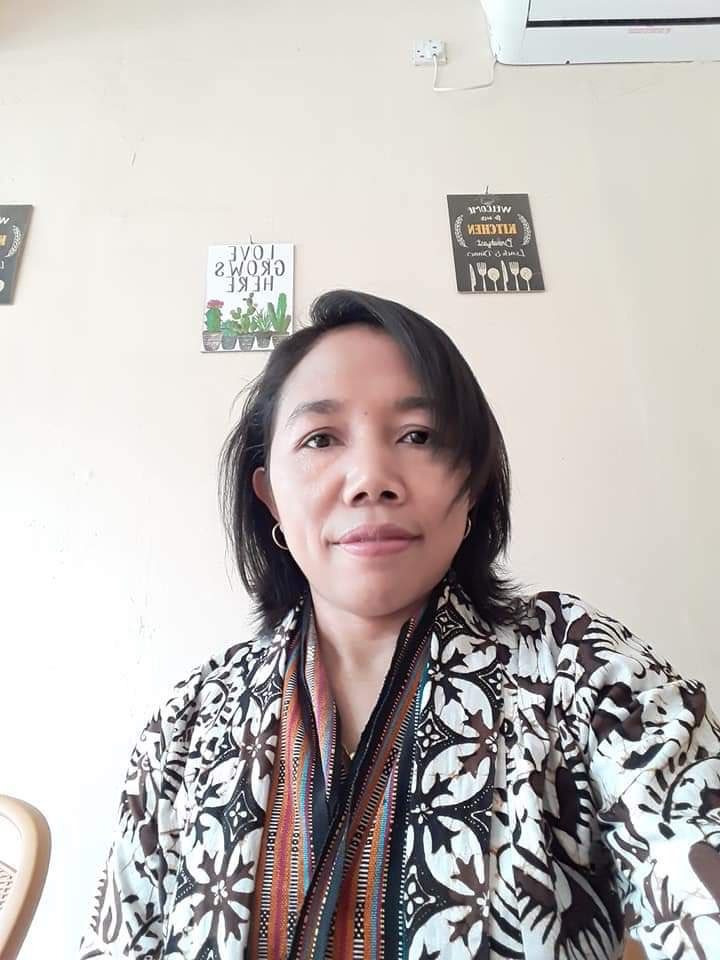



I joined FAMM Indonesia (Young Indonesian Women Activists’ Forum) during their intergenerational meeting and Movement Building Institute (MBI) in 2010. Initially, I received an invitation from the director of the Women’s House to attend the activity, and I was very happy to participate in the event. I remember that during the activity, there was a moment in which we were instructed to mention the name of the most influential person in our lives. There was also the café poster activity and the roleplay exercise. These three methods captured my interest at that moment, because for me, they were all new.
At that time, one specific issue caught my attention amidst the number of issues that were presented there: the lesbian gay bisexual transgender (LGBT) issue. One of the MBI participants was a representative from the lesbian-bisexual-trans (LBT) community. I remember that my friend refused to share a room with her. My friend told me that story, and, in my head, I also thought that if I were the one who got the offer, I would have definitely refused it. In my understanding, she might do something bad to me. However, my past understanding was proven wrong over the course of my journey, especially after I met with my friend Cung who helped me understand what sexual orientation is. I realized that, all this time, I had misjudged my LBT friends. I am grateful that I met and conversed with Cung. The diversity of FAMM Indonesia members greatly contributed to changing my way of thinking in interpreting life and the social issues surrounding it.
Over time, FAMM Indonesia trusted me to organize the JASS annual regional One Day, One Voice (ODOV) campaign activity in East Nusa Tenggara (Rumah Perempuan Kupang). I’m very proud of it, because I think not everyone can be given such trust. Back then, I was the only active FAMM Indonesia member in East Nusa Tenggara. Right now, a lot of NGOs in East Nusa Tenggara are no longer organizing campaigns on big days, such as during the Indonesian Women’s Day or the Anti Gender-Based Violence Day, because they don’t have the funds. But because my organization, Rumah Perempuan, is supported by FAMM Indonesia, to date, we still have the privilege to organize campaigns such as the ODOV.
One of the activities that also had a big impact on my life was the Safe Space Training organized by FAMM Indonesia in 2020 in Bali. A lot of things within me changed. The change that I find most meaningful is that my relationship with my husband is now more egalitarian and equal. I used to be a demanding person; I often chose not to talk to my partner for days if there was something I didn’t like about his attitude towards me, but I was actually tormented by this decision. In the process of this training, it turned out that I also had past traumas that were unconsciously carried over until then. I think that the whole process is something extraordinary, because I can find things that I didn’t realize all this time.
After participating in the safe space training, I became more aware that what is happening to me and my husband today can’t be separated from the way we were shaped by our past, and this will carry into our futures. My relationship with my husband is now more equal, respectful, and even more intimate. I shared the safe space method I learned from FAMM Indonesia with my husband, and he was happy that I changed for the better. We made a commitment to maintain this change for the better.
Becoming a field assistant during the implementation of FPAR in East Nusa Tenggara was a challenge for me. During the process of accompanying this community for 10 months, a lot of changes happened within me. Although I have been working on violence against women (VAW) issues for almost 15 years, I rarely deal with survivors directly, because I am a member of the staff of the Capacity Building and Group Organizing division. During the FPAR process, especially during the personal stories exercise, I stumbled upon a lot of stories about problems. I feel very lucky, because, even now, I still have the strength to work on this issue. I’ve become more empathetic towards women survivors and have learned how to appreciate everyone, especially women who had been victims that have been very strong in dealing with it.
As an FPAR facilitator, I felt challenged to use methods that were not considered boring by the participants, such as games, funny stories, and meeting these women more often. I found that through these methods, I was able to build a well-developed relationship with them. I was happy that the women survivors looked more cheerful and began to recover from the problems they experienced.
Although it’s very important to keep working on the issue of violence against women, breaking the chain of violence is not only a matter of strengthening these women mentally and emotionally. We also have to strengthen other aspects as well, such as providing women’s economic empowerment so that they have a better bargaining position in the family and can make their own decisions.